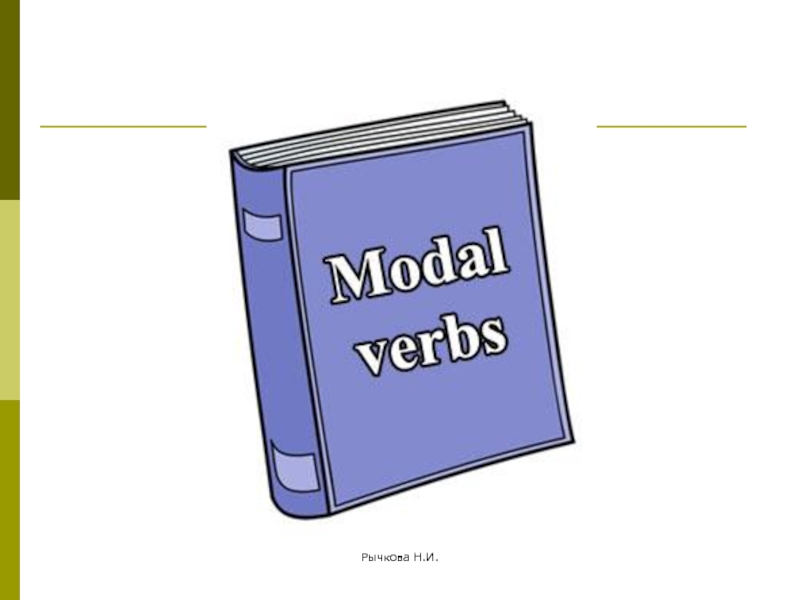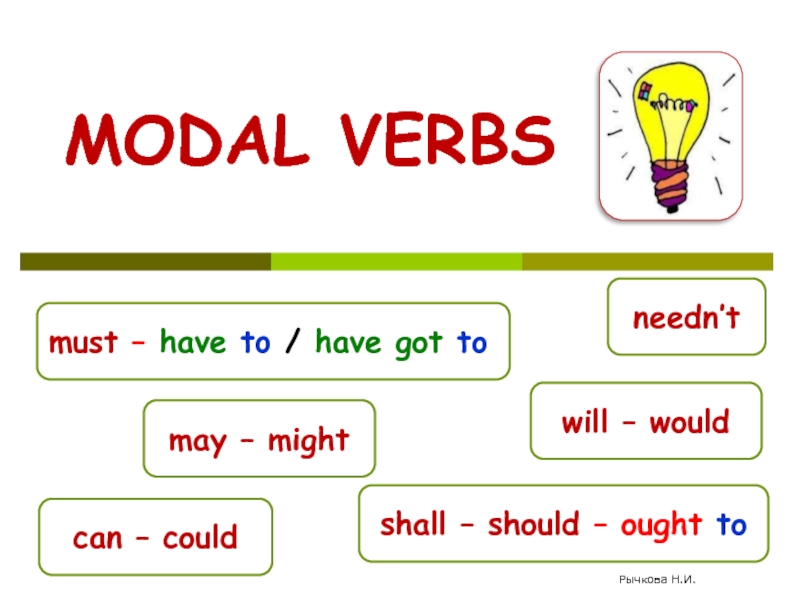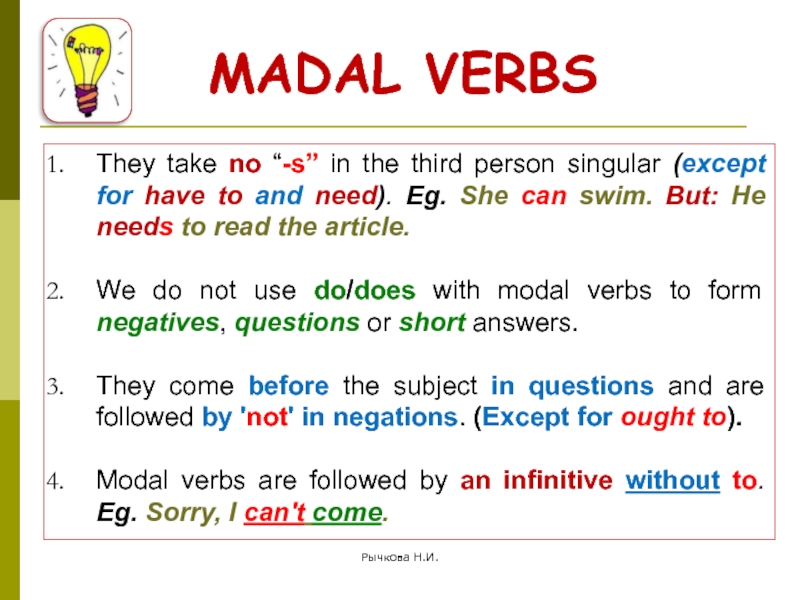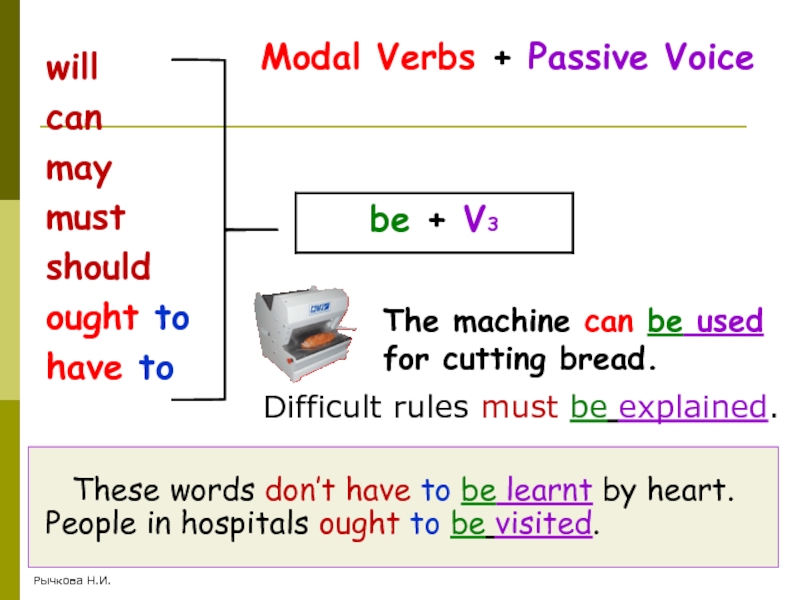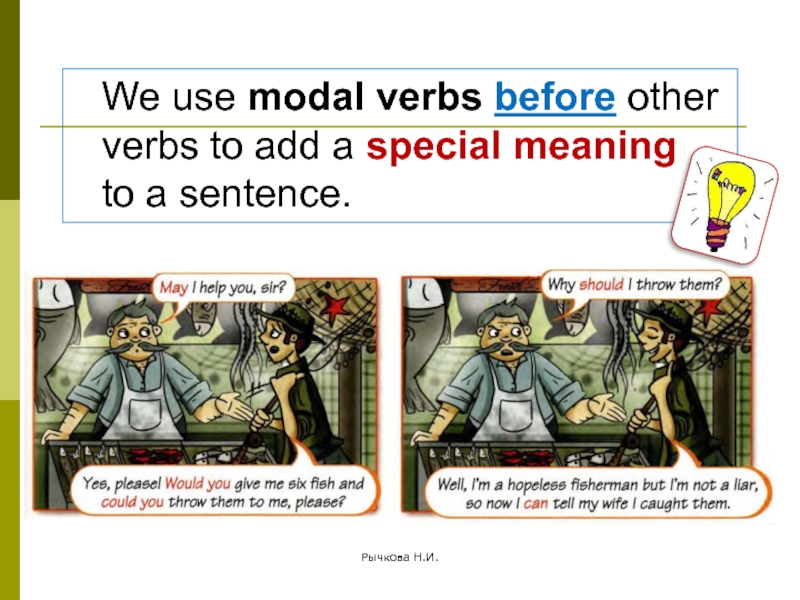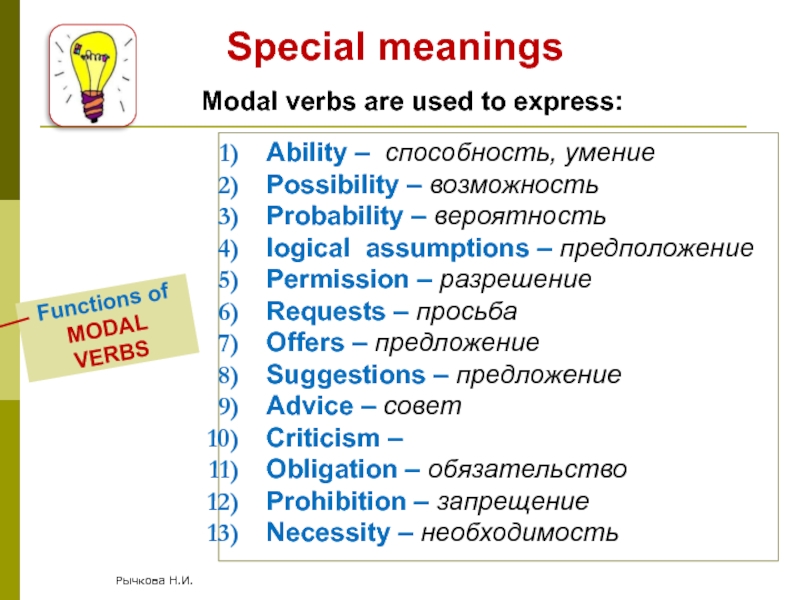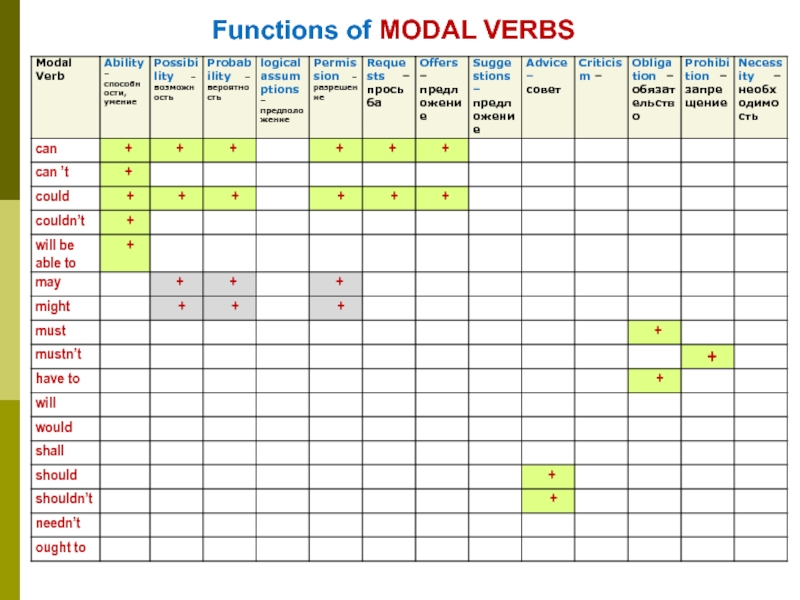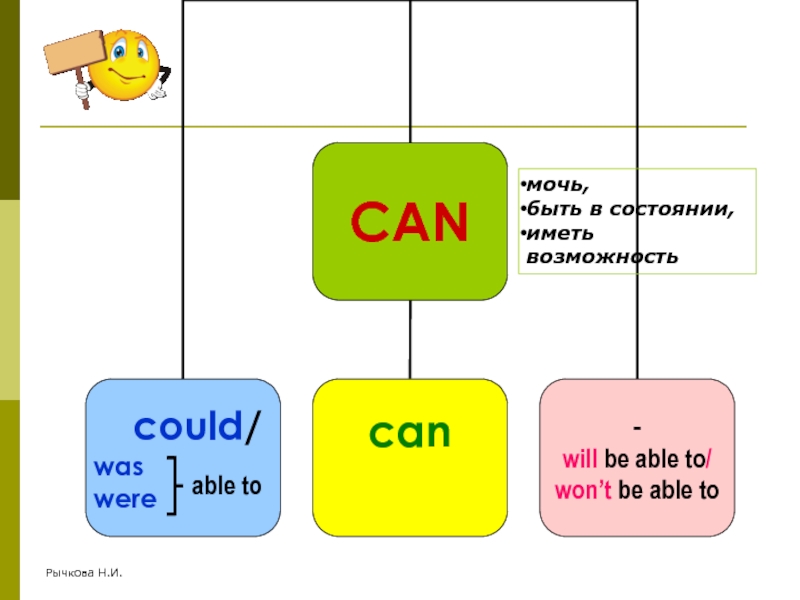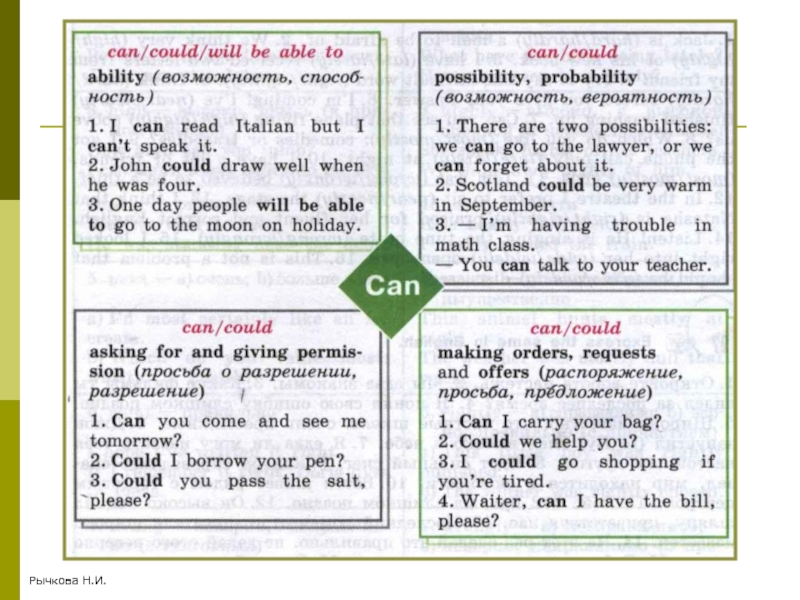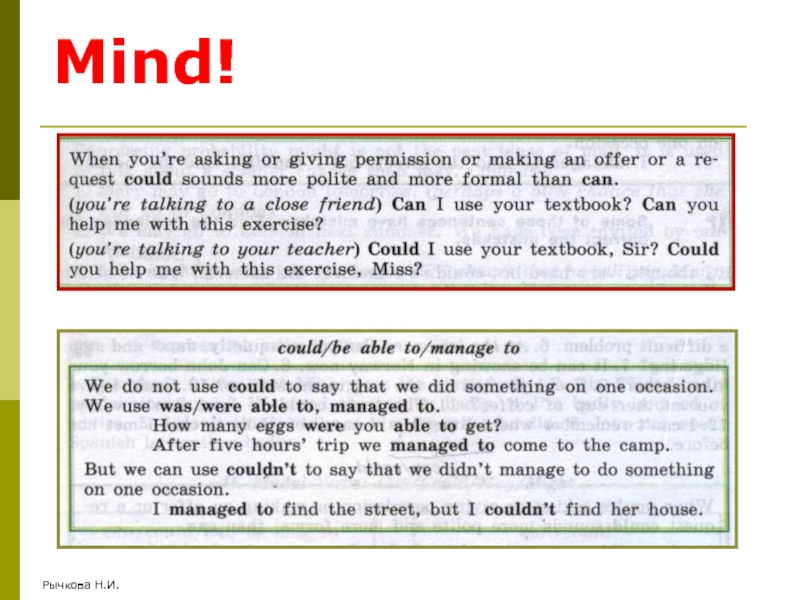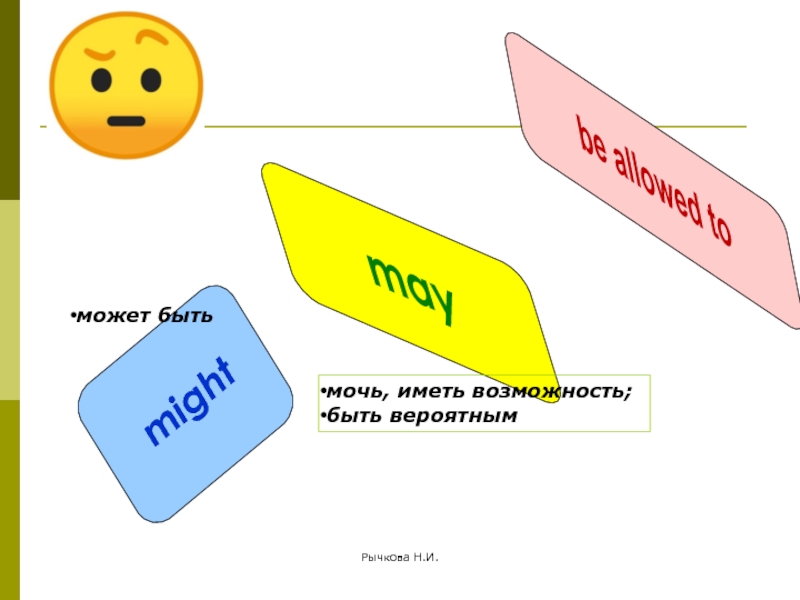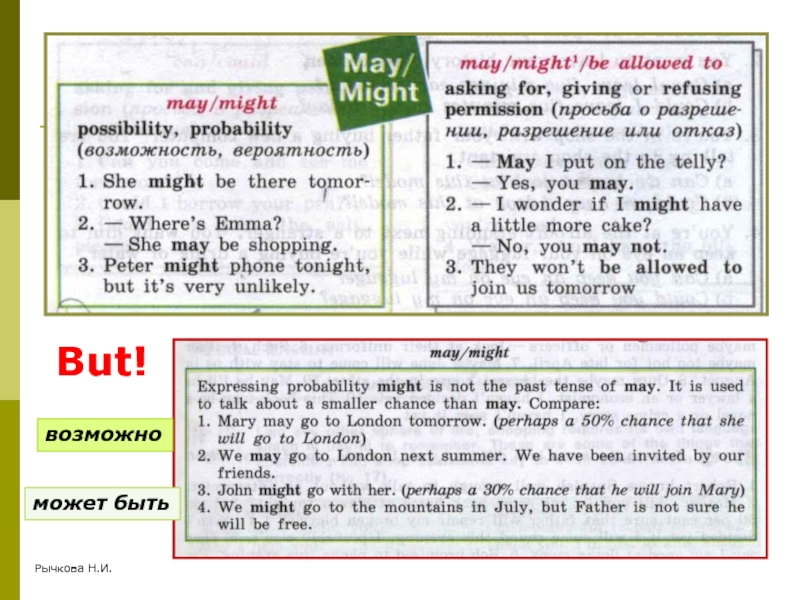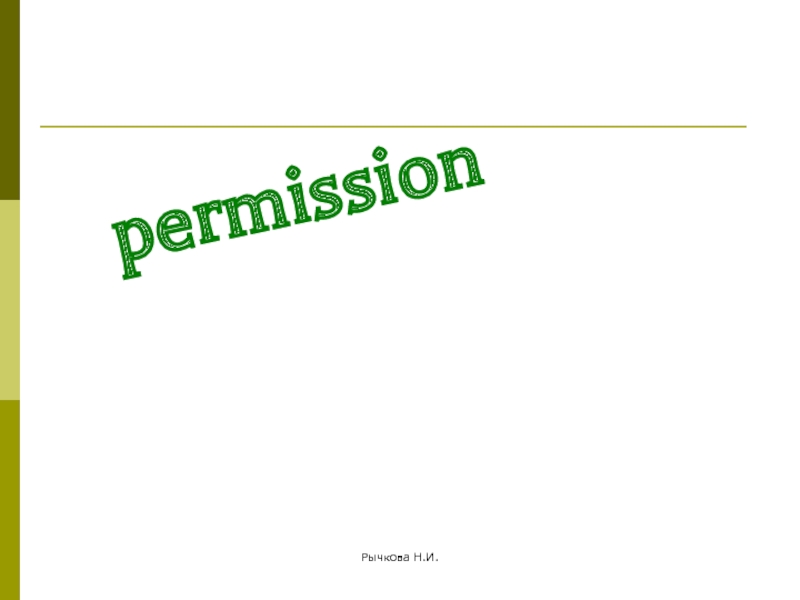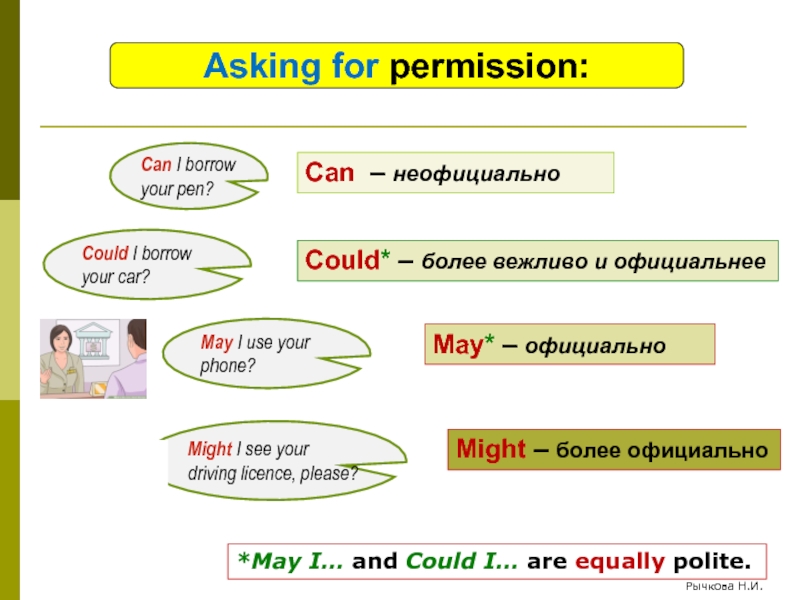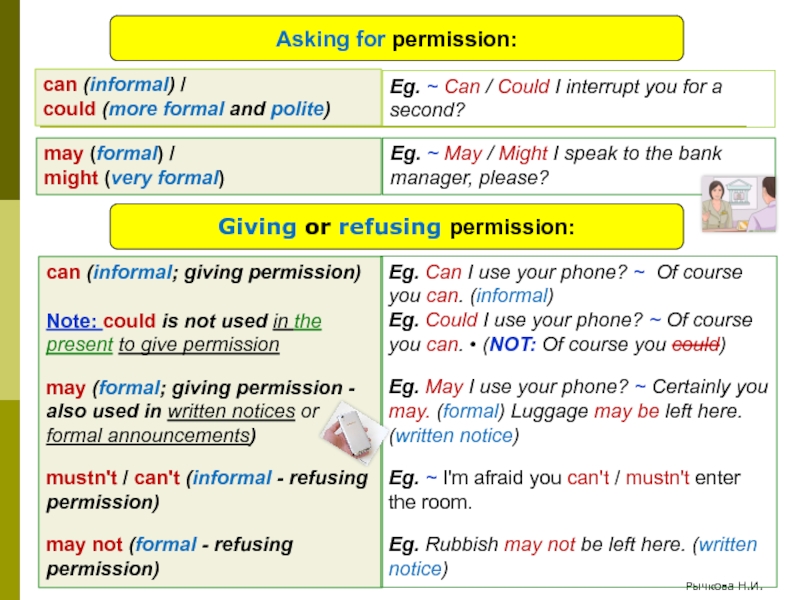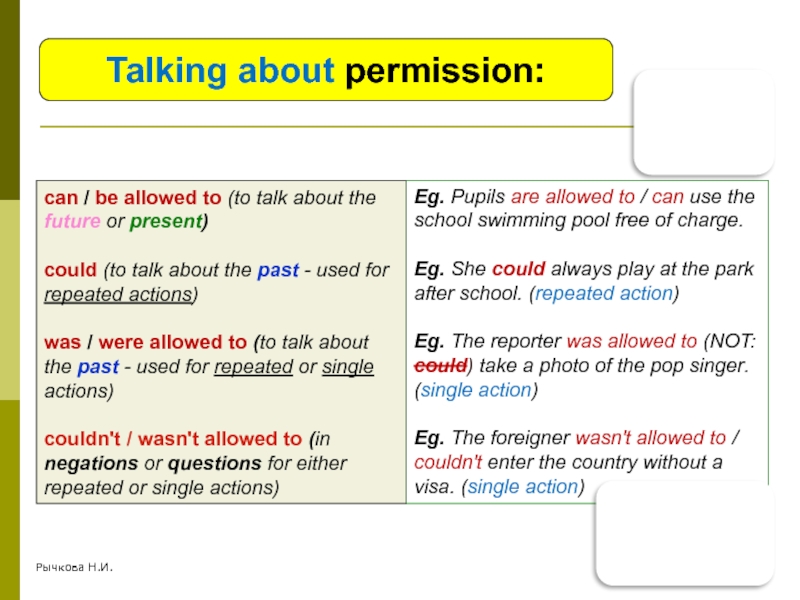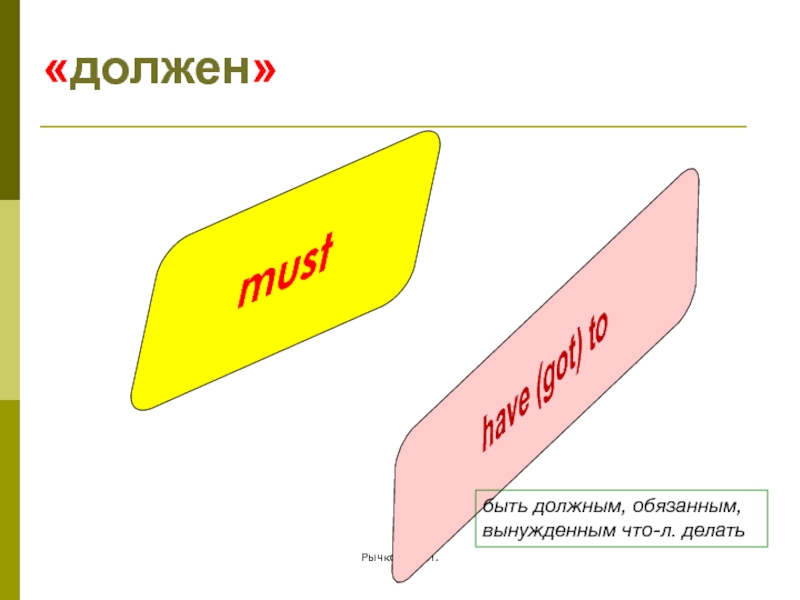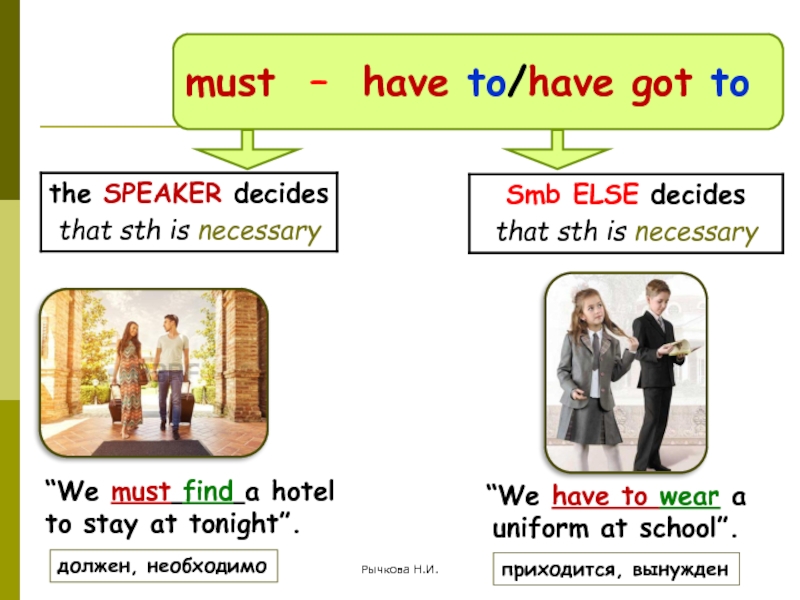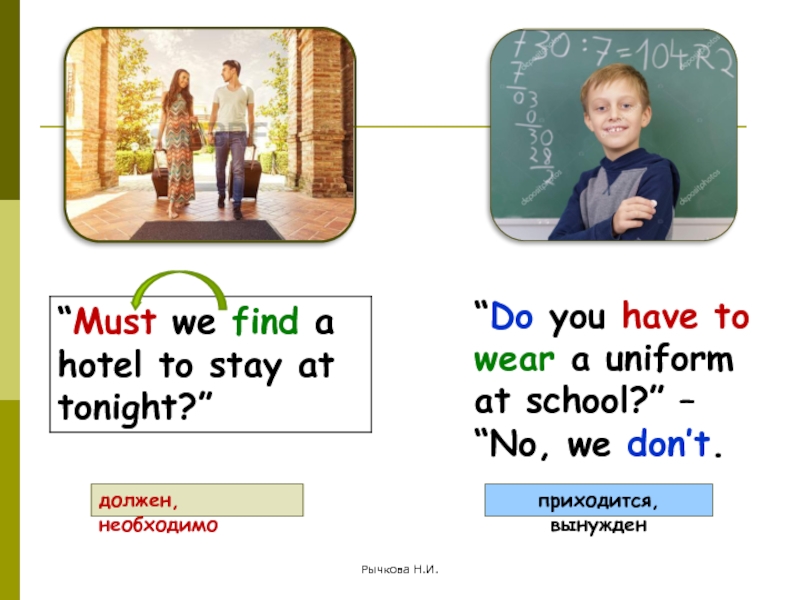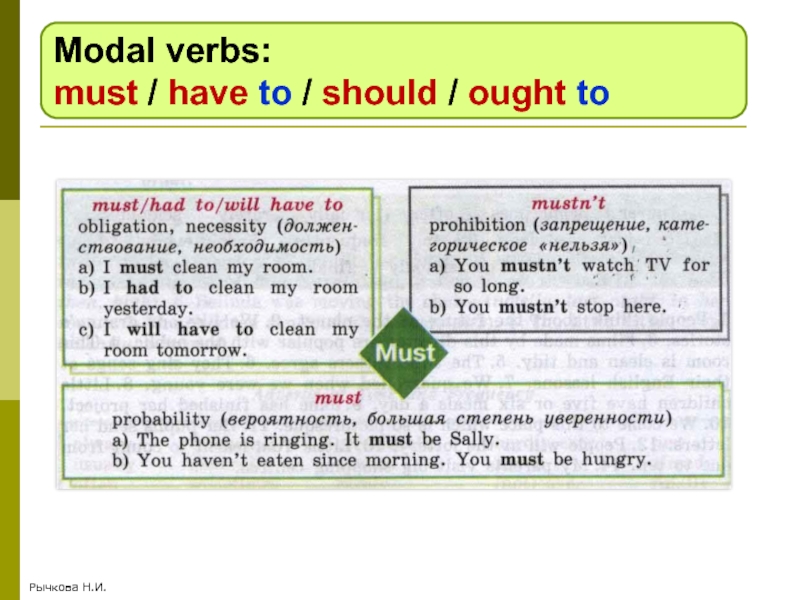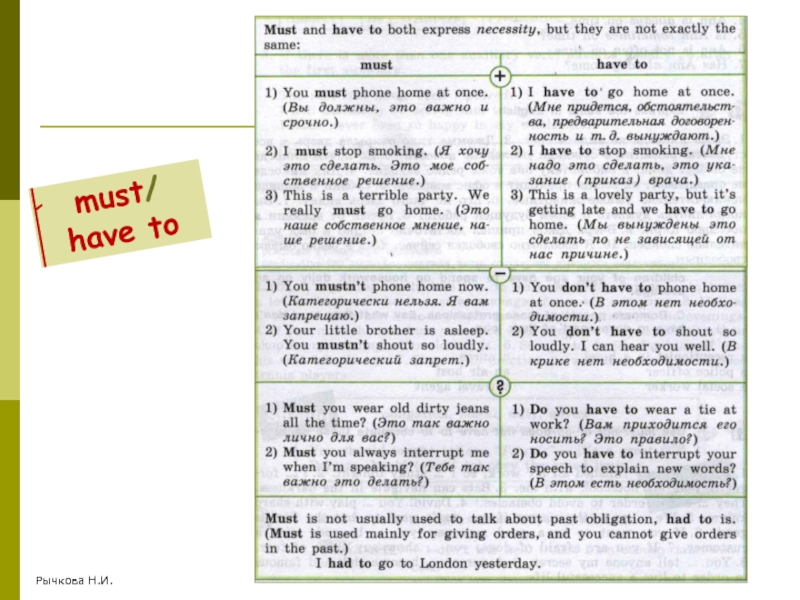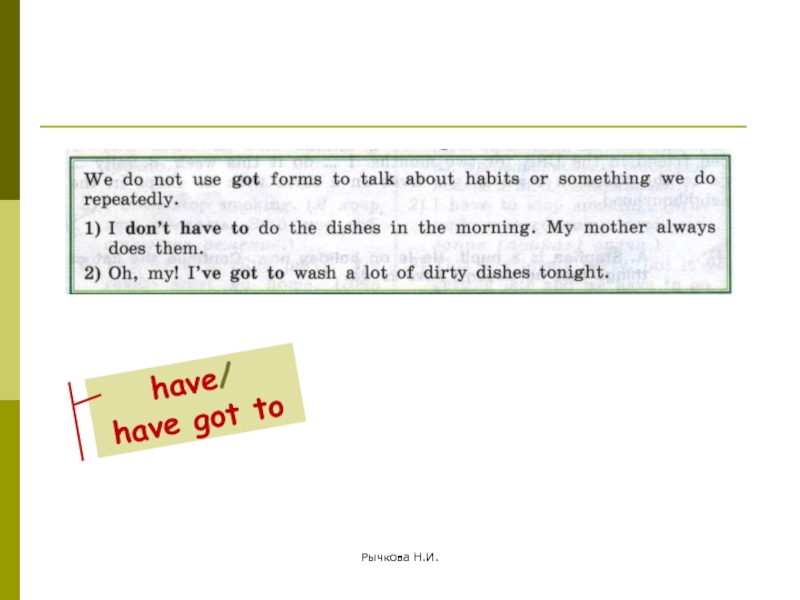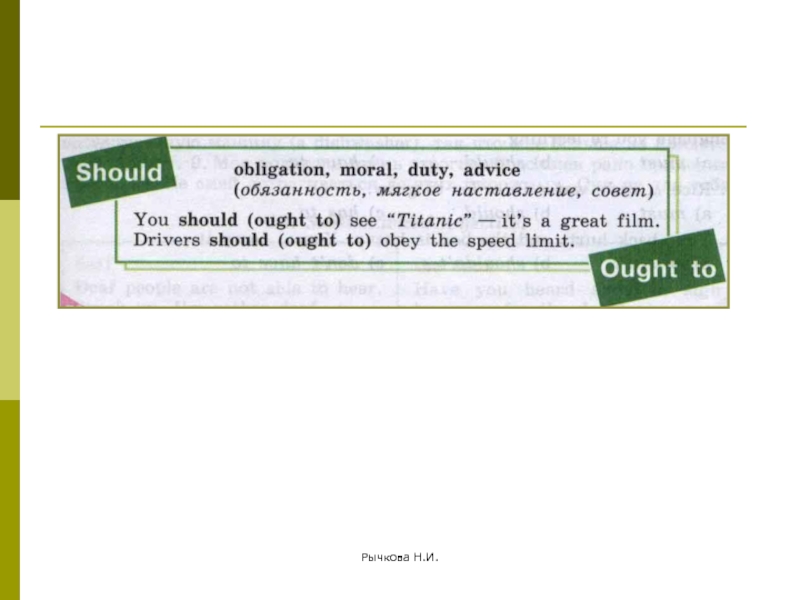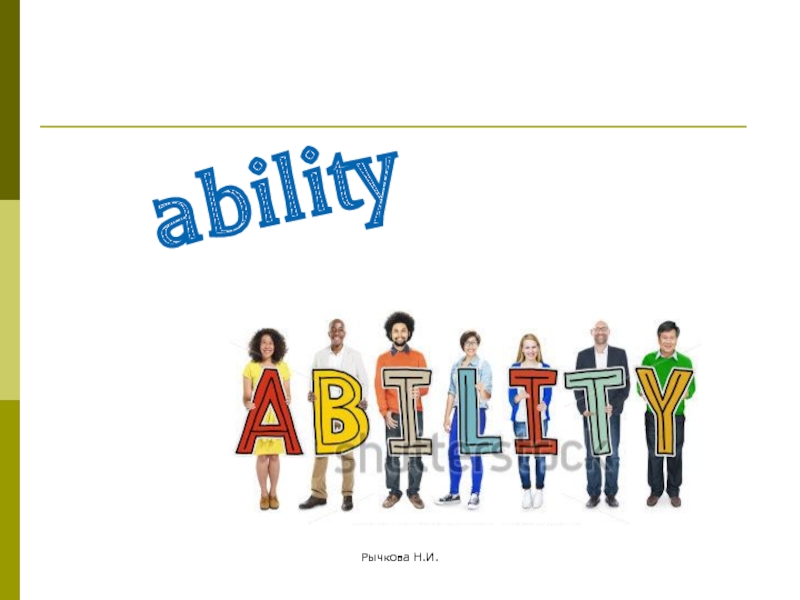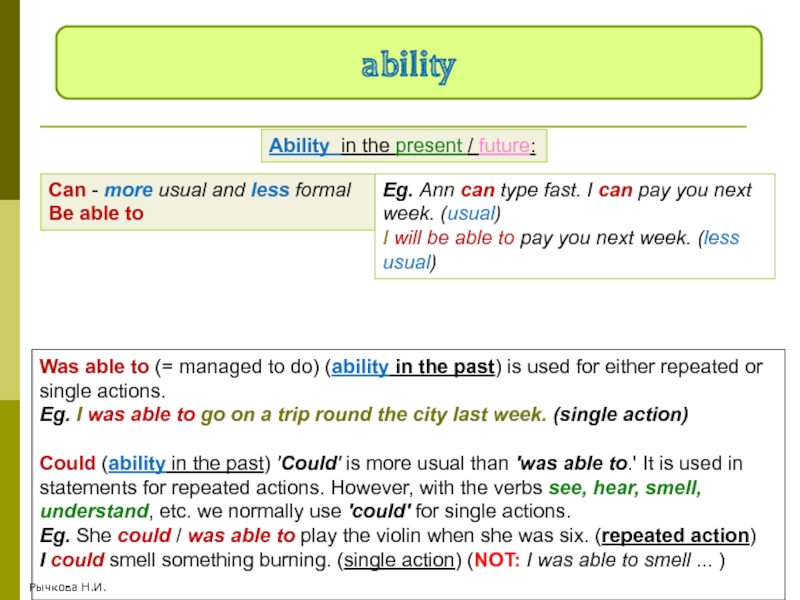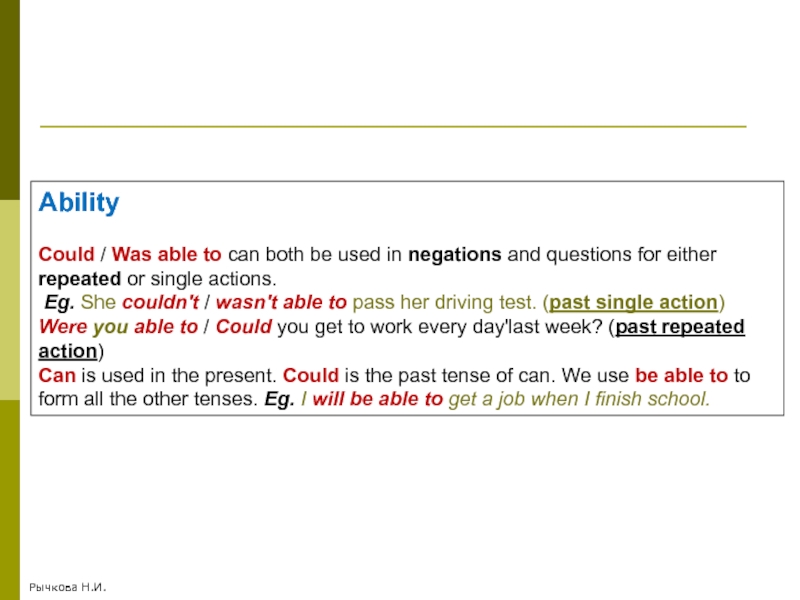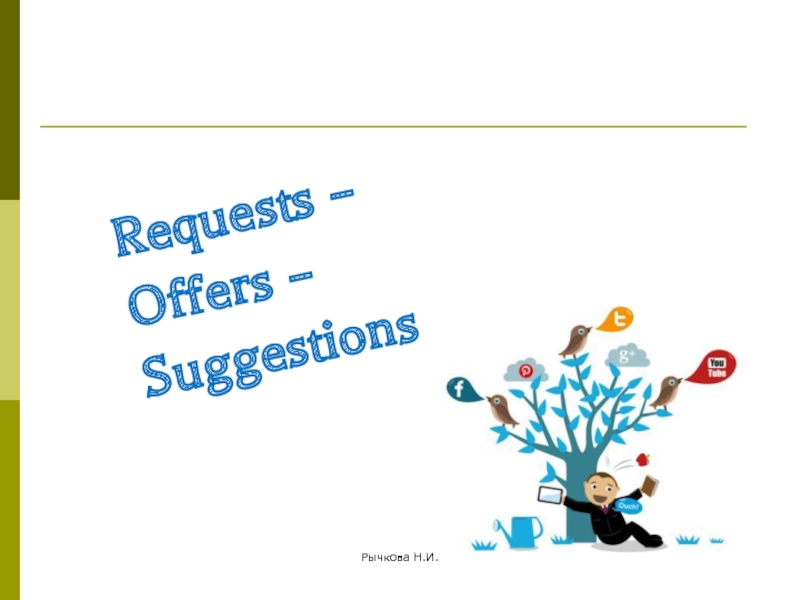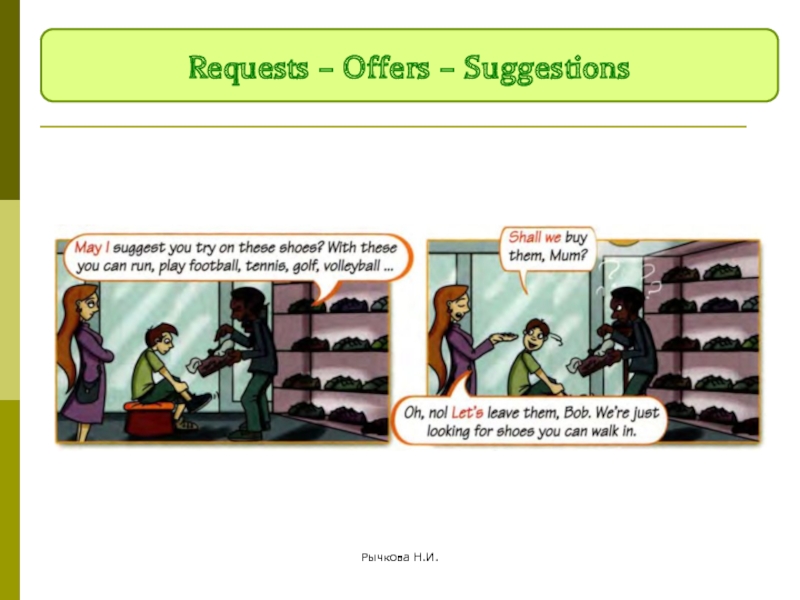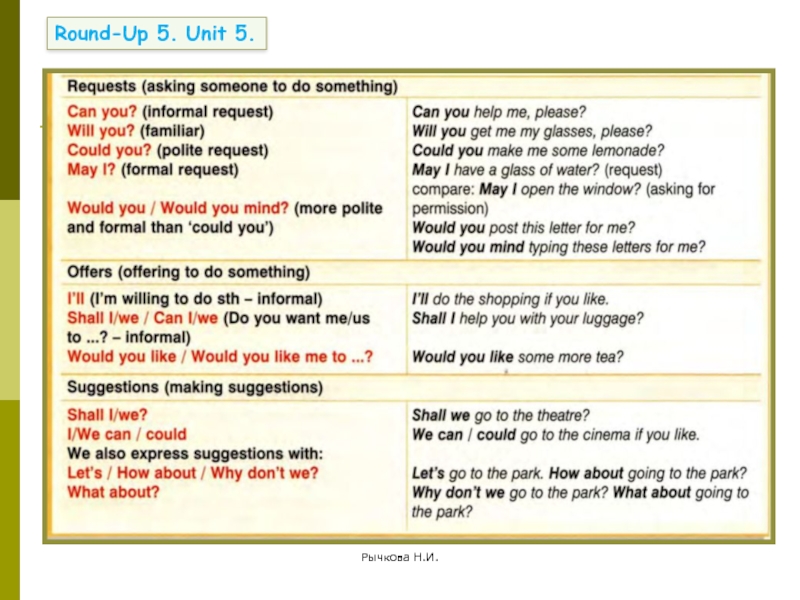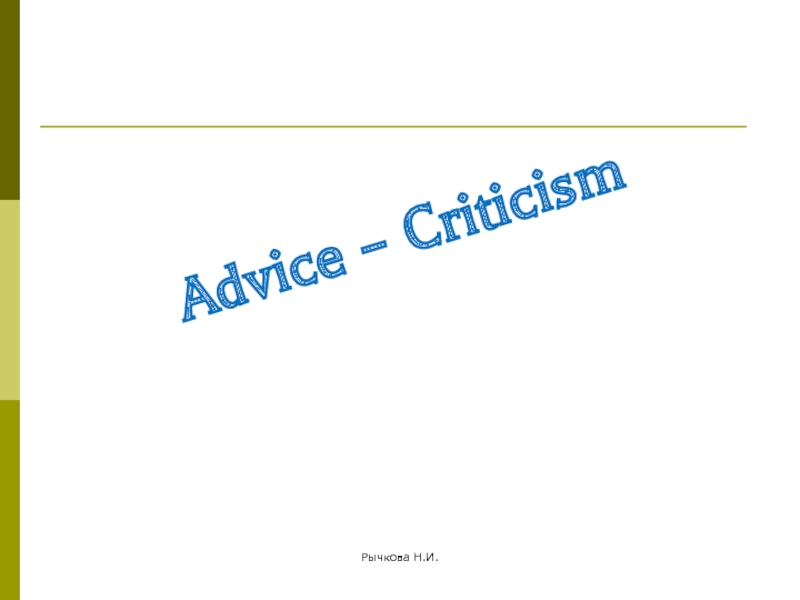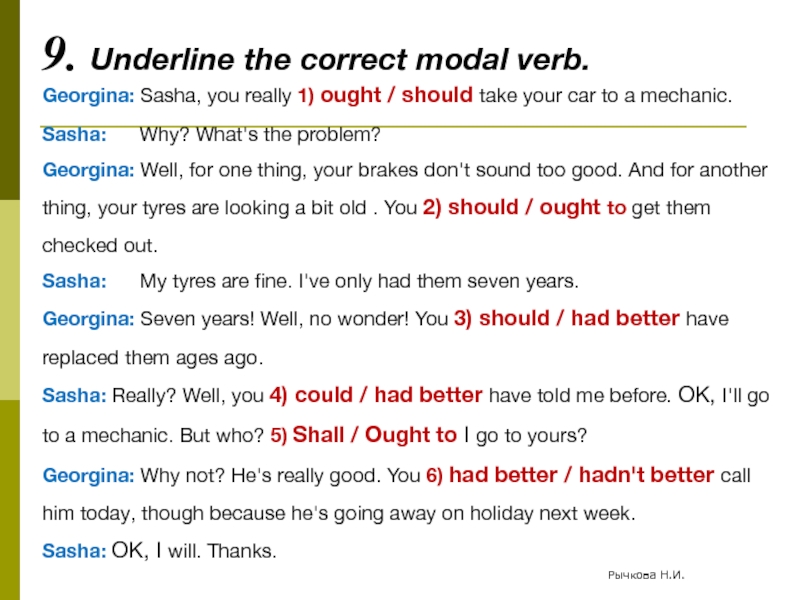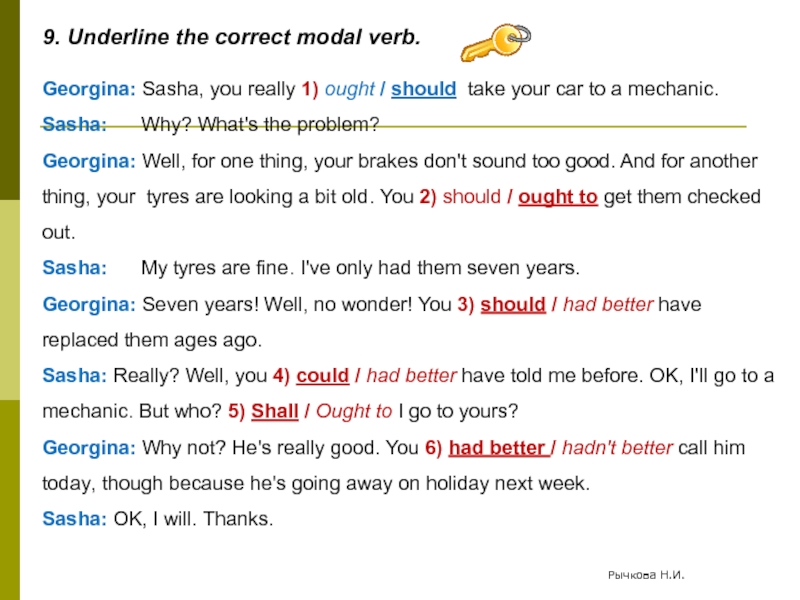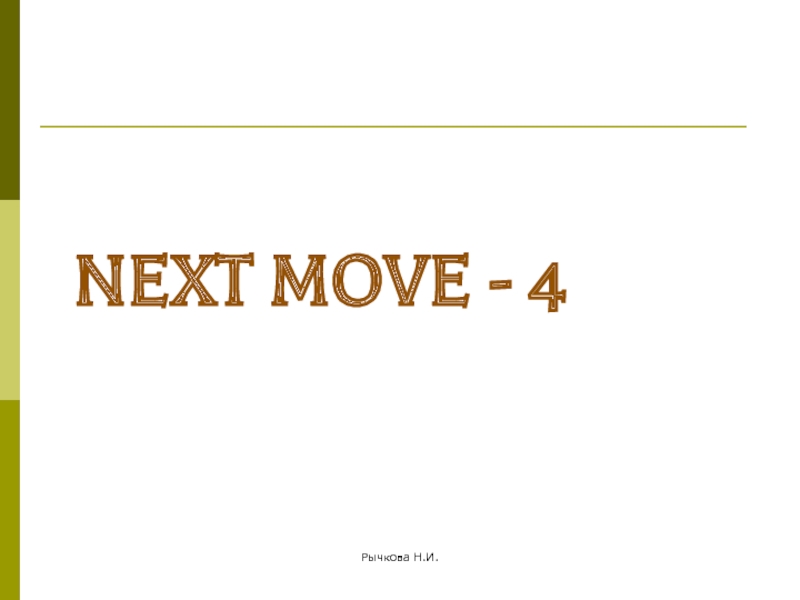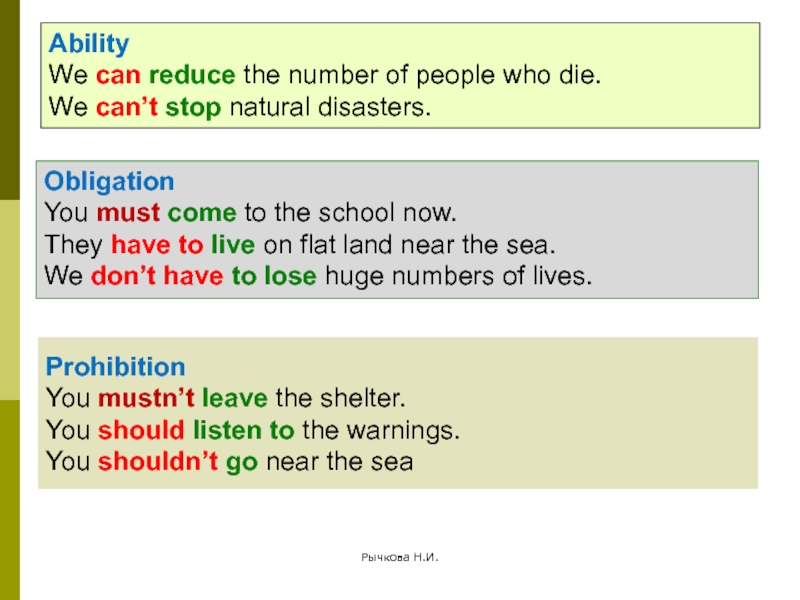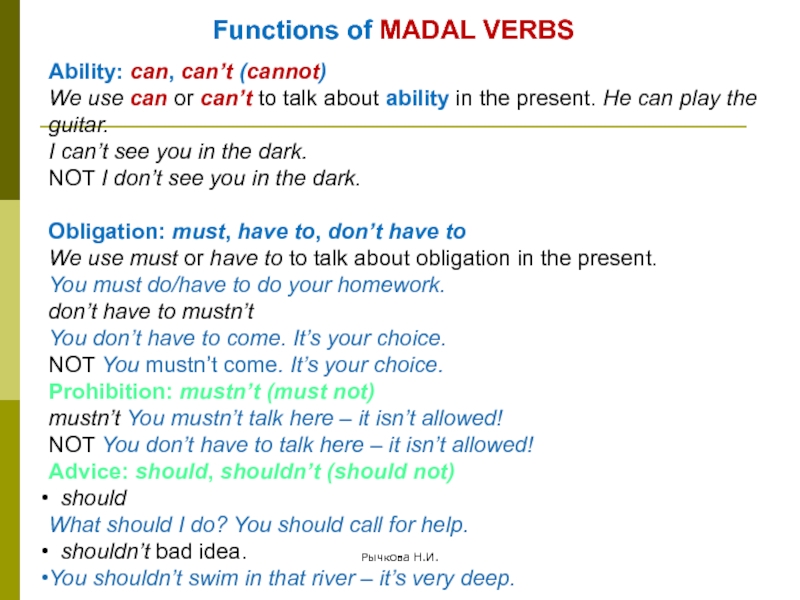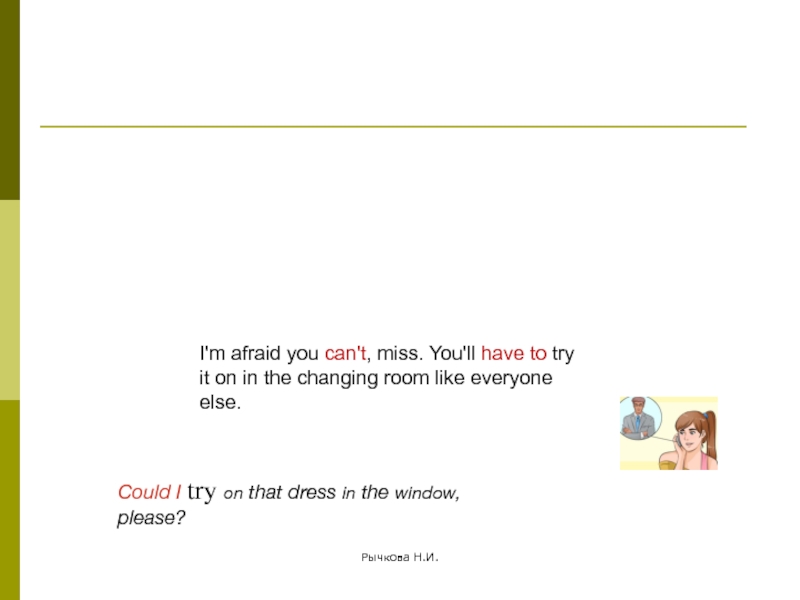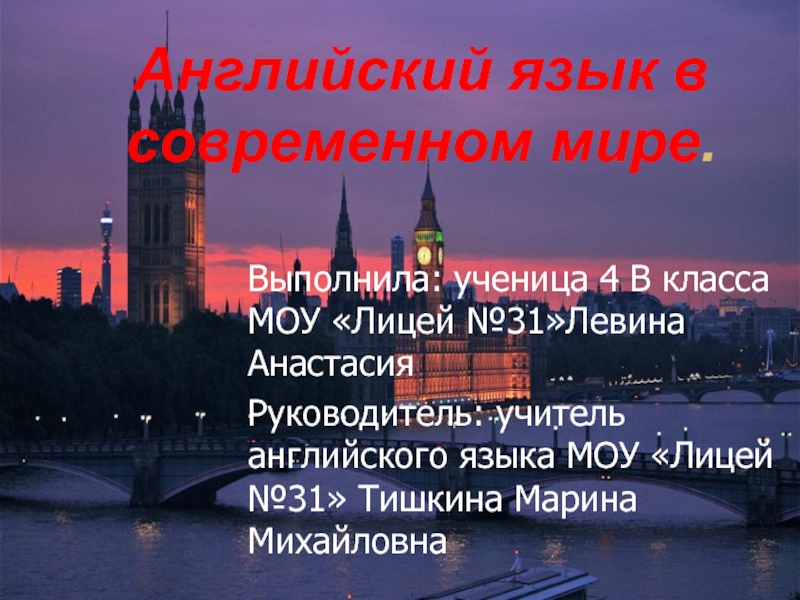- Главная
- Разное
- Дизайн
- Бизнес и предпринимательство
- Аналитика
- Образование
- Развлечения
- Красота и здоровье
- Финансы
- Государство
- Путешествия
- Спорт
- Недвижимость
- Армия
- Графика
- Культурология
- Еда и кулинария
- Лингвистика
- Английский язык
- Астрономия
- Алгебра
- Биология
- География
- Детские презентации
- Информатика
- История
- Литература
- Маркетинг
- Математика
- Медицина
- Менеджмент
- Музыка
- МХК
- Немецкий язык
- ОБЖ
- Обществознание
- Окружающий мир
- Педагогика
- Русский язык
- Технология
- Физика
- Философия
- Химия
- Шаблоны, картинки для презентаций
- Экология
- Экономика
- Юриспруденция
Modal verbs презентация
Содержание
- 1. Modal verbs
- 2. MODAL VERBS Рычкова Н.И. needn’t must
- 3. Рычкова Н.И. They take no “-s” in
- 4. The machine can be used
- 5. Рычкова Н.И. We use modal verbs before
- 6. Рычкова Н.И. Modal verbs are used to
- 7. Рычкова Н.И. Functions of MODAL VERBS
- 8. Рычкова Н.И. able to мочь, быть в состоянии, иметь возможность
- 9. Рычкова Н.И.
- 10. Рычкова Н.И. Mind!
- 11. Рычкова Н.И. мочь, иметь возможность; быть вероятным может быть
- 12. Рычкова Н.И. But! может быть возможно
- 13. Рычкова Н.И. permission
- 14. Рычкова Н.И. Can – неофициально
- 15. Рычкова Н.И. can (informal) /
- 16. Рычкова Н.И. can / be allowed to
- 17. Рычкова Н.И. «должен» быть должным, обязанным, вынужденным что-л. делать
- 18. Рычкова Н.И. must – have to/have got to приходится, вынужден должен, необходимо
- 19. Рычкова Н.И. приходится, вынужден должен, необходимо
- 20. Рычкова Н.И. Modal verbs: must / have to / should / ought to
- 21. Рычкова Н.И. must/ have to
- 22. Рычкова Н.И. have/ have got to
- 23. Рычкова Н.И.
- 24. Рычкова Н.И. ability
- 25. Рычкова Н.И. Was able to (=
- 26. Рычкова Н.И. Ability Could
- 27. Рычкова Н.И. Requests – Offers – Suggestions
- 28. Рычкова Н.И. Requests – Offers – Suggestions
- 29. Рычкова Н.И. Round-Up 5. Unit 5.
- 30. Рычкова Н.И. Advice – Criticism
- 31. Рычкова Н.И. 9. Underline the correct modal
- 32. Рычкова Н.И. 9. Underline the correct modal
- 33. Рычкова Н.И. NEXT MOVE - 4
- 34. Рычкова Н.И. Obligation You must come to
- 35. Рычкова Н.И. Ability: can, can’t (cannot)
- 36. Рычкова Н.И. I'm afraid you can't, miss.
Слайд 2MODAL VERBS
Рычкова Н.И.
needn’t
must – have to / have got to
can – could
may – might
will – would
shall – should – ought to
Слайд 3Рычкова Н.И.
They take no “-s” in the third person singular (except
We do not use do/does with modal verbs to form negatives, questions or short answers.
They come before the subject in questions and are followed by 'not' in negations. (Except for ought to).
Modal verbs are followed by an infinitive without to. Eg. Sorry, I can't come.
MADAL VERBS
Слайд 4
The machine can be used for cutting bread.
These words don’t have
People in hospitals ought to be visited.
Difficult rules must be explained.
Рычкова Н.И.
Слайд 6Рычкова Н.И.
Modal verbs are used to express:
Special meanings
Ability –
Possibility – возможность
Probability – вероятность
logical assumptions – предположение
Permission – разрешение
Requests – просьба
Offers – предложение
Suggestions – предложение
Advice – совет
Criticism –
Obligation – обязательство
Prohibition – запрещение
Necessity – необходимость
Functions of MODAL VERBS
Слайд 14Рычкова Н.И.
Can – неофициально
May* – официально
Asking for permission:
*May I… and
Could* – более вежливо и официальнее
Might – более официально
Can I borrow your pen?
Could I borrow your car?
May I use your phone?
Might I see your driving licence, please?
Слайд 15Рычкова Н.И.
can (informal) /
could (more formal and polite)
Eg. ~
may (formal) /
might (very formal)
Eg. ~ May / Might I speak to the bank manager, please?
can (informal; giving permission)
Note: could is not used in the present to give permission
may (formal; giving permission - also used in written notices or formal announcements)
mustn't / can't (informal - refusing permission)
may not (formal - refusing permission)
Eg. Can I use your phone? ~ Of course you can. (informal)
Eg. Could I use your phone? ~ Of course you can. • (NOT: Of course you could)
Eg. May I use your phone? ~ Certainly you may. (formal) Luggage may be left here. (written notice)
Eg. ~ I'm afraid you can't / mustn't enter the room.
Eg. Rubbish may not be left here. (written notice)
Asking for permission:
Giving or refusing permission:
Слайд 16Рычкова Н.И.
can / be allowed to (to talk about the future
could (to talk about the past - used for repeated actions)
was / were allowed to (to talk about the past - used for repeated or single actions)
couldn't / wasn't allowed to (in negations or questions for either repeated or single actions)
Talking about permission:
Eg. Pupils are allowed to / can use the school swimming pool free of charge.
Eg. She could always play at the park after school. (repeated action)
Eg. The reporter was allowed to (NOT: could) take a photo of the pop singer. (single action)
Eg. The foreigner wasn't allowed to / couldn't enter the country without a visa. (single action)
Слайд 25Рычкова Н.И.
Was able to (= managed to do) (ability in the
Eg. I was able to go on a trip round the city last week. (single action)
Could (ability in the past) 'Could' is more usual than 'was able to.' It is used in statements for repeated actions. However, with the verbs see, hear, smell, understand, etc. we normally use 'could' for single actions.
Eg. She could / was able to play the violin when she was six. (repeated action)
I could smell something burning. (single action) (NOT: I was able to smell ... )
ability
Can - more usual and less formal
Be able to
Ability in the present / future:
Eg. Ann can type fast. I can pay you next week. (usual)
I will be able to pay you next week. (less usual)
Слайд 26Рычкова Н.И.
Ability
Could / Was able to can both be used
Can is used in the present. Could is the past tense of can. We use be able to to form all the other tenses. Eg. I will be able to get a job when I finish school.
Слайд 31Рычкова Н.И.
9. Underline the correct modal verb.
Georgina: Sasha, you really 1)
Sasha: My tyres are fine. I've only had them seven years. Georgina: Seven years! Well, no wonder! You 3) should / had better have replaced them ages ago.
Sasha: Really? Well, you 4) could / had better have told me before. OK, I'll go to a mechanic. But who? 5) Shall / Ought to I go to yours?
Georgina: Why not? He's really good. You 6) had better / hadn't better call him today, though because he's going away on holiday next week.
Sasha: OK, I will. Thanks.
Слайд 32Рычкова Н.И.
9. Underline the correct modal verb.
Georgina: Sasha, you really 1)
Sasha: My tyres are fine. I've only had them seven years. Georgina: Seven years! Well, no wonder! You 3) should / had better have replaced them ages ago.
Sasha: Really? Well, you 4) could / had better have told me before. OK, I'll go to a mechanic. But who? 5) Shall / Ought to I go to yours?
Georgina: Why not? He's really good. You 6) had better / hadn't better call him today, though because he's going away on holiday next week.
Sasha: OK, I will. Thanks.
Слайд 34Рычкова Н.И.
Obligation
You must come to the school now.
They have to live
We don’t have to lose huge numbers of lives.
Ability
We can reduce the number of people who die.
We can’t stop natural disasters.
Слайд 35Рычкова Н.И.
Ability: can, can’t (cannot)
We use can or can’t to
Obligation: must, have to, don’t have to
We use must or have to to talk about obligation in the present. You must do/have to do your homework.
don’t have to mustn’t You don’t have to come. It’s your choice. NOT You mustn’t come. It’s your choice.
Prohibition: mustn’t (must not)
mustn’t You mustn’t talk here – it isn’t allowed! NOT You don’t have to talk here – it isn’t allowed!
Advice: should, shouldn’t (should not)
should What should I do? You should call for help.
shouldn’t bad idea.
You shouldn’t swim in that river – it’s very deep.
Functions of MADAL VERBS
Слайд 36Рычкова Н.И.
I'm afraid you can't, miss. You'll have to try it
Could I try on that dress in the window, please?
